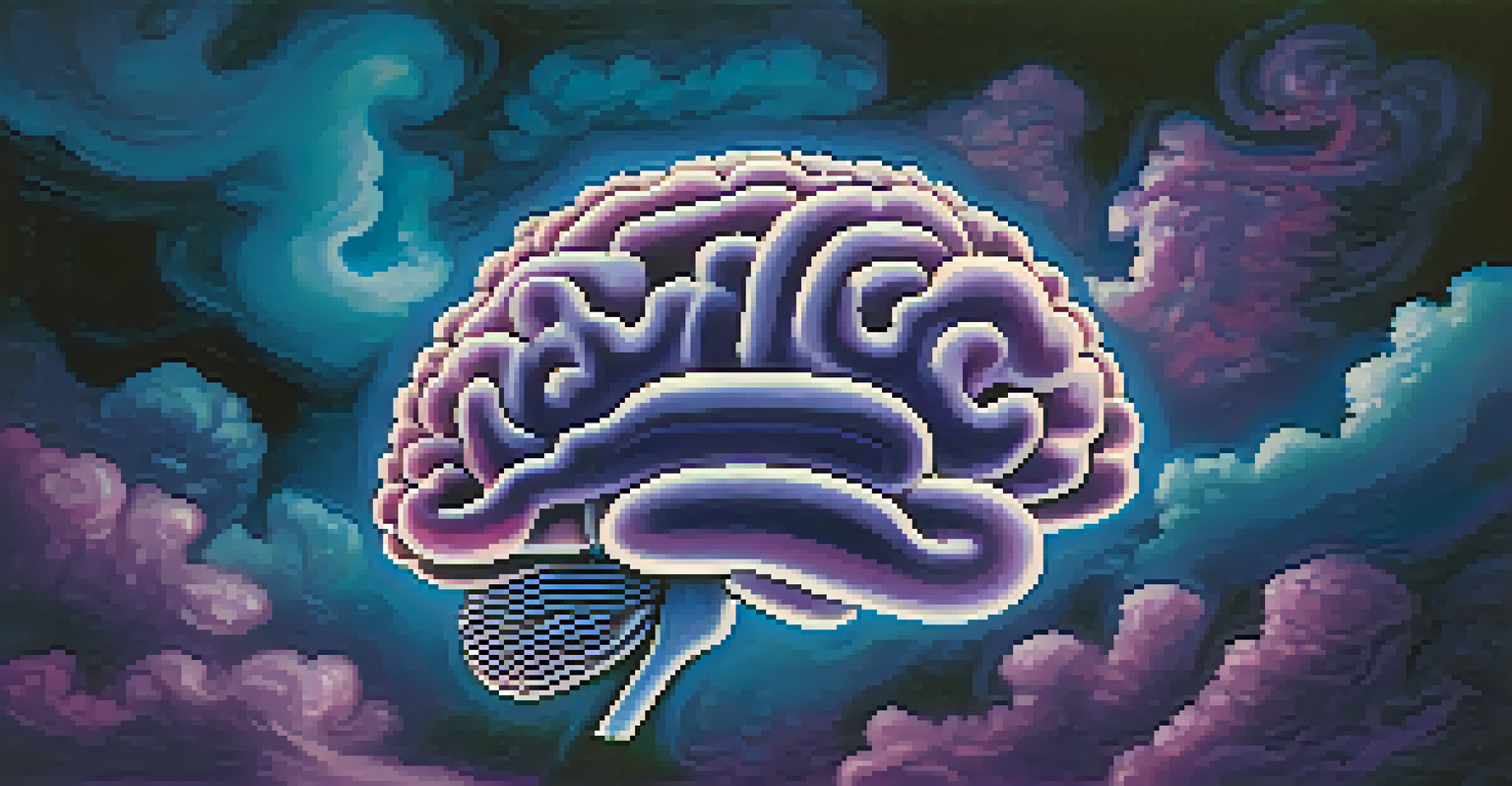Potential Risks of Using Marijuana for Sleep Disorders

Marijuana Use and Sleep: An Overview
Marijuana has gained popularity as a natural remedy for sleep disorders. Many people turn to it in hopes of finding relief from insomnia or other sleep issues. However, the relationship between marijuana and sleep is complex and not fully understood.
The greatest wealth is health.
While some users report improved sleep quality, research indicates that marijuana can also alter sleep architecture. This means it may change how we cycle through different sleep stages, which can have long-term implications for sleep health.
It's important to consider both the potential benefits and risks before deciding to use marijuana for sleep. An informed approach can help individuals make better choices about their sleep health.
Short-Term Effects of Marijuana on Sleep
In the short term, marijuana may help individuals fall asleep faster. This is often attributed to its calming effects, which can be particularly helpful for those struggling with anxiety or racing thoughts at bedtime.

However, while it might ease the process of falling asleep, it can also lead to fragmented sleep patterns. Users may find themselves waking up more frequently during the night, which can diminish overall sleep quality.
Marijuana's Mixed Effects on Sleep
While marijuana may help some fall asleep faster, it can disrupt sleep quality and architecture.
Understanding these short-term effects is crucial for anyone considering marijuana as a sleep aid. It emphasizes the need for careful monitoring of how one’s sleep is affected over time.
Potential Long-Term Risks of Marijuana Use
Using marijuana regularly for sleep can lead to tolerance, meaning users may need to consume more to achieve the same effects. This can create a cycle of increased usage that may not be sustainable or healthy.
Your body is your most priceless possession. Take care of it.
Long-term marijuana use has also been associated with a range of cognitive issues, including memory problems and decreased attention spans. These effects can severely impact daily functioning and overall quality of life.
It's essential to weigh these long-term risks against the immediate benefits of using marijuana for sleep. This helps individuals make informed decisions about their health.
Impact on REM Sleep and Dreams
Marijuana use can significantly affect REM sleep, the stage associated with dreaming. Some studies suggest that THC, the active compound in marijuana, may suppress REM sleep, which can reduce the frequency of dreams.
For some, this might sound appealing, especially if nightmares or vivid dreams are a concern. However, dreams play a vital role in emotional processing and mental health, and their absence could have unintended consequences.
Long-Term Risks of Regular Use
Regular marijuana use for sleep can lead to tolerance and cognitive issues, impacting overall health.
Being aware of how marijuana affects REM sleep can help users assess whether the trade-off is worth it. This understanding can guide them in making choices that align with their overall well-being.
Withdrawal Symptoms and Sleep Disruption
For regular marijuana users, discontinuing use can lead to withdrawal symptoms, including sleep disturbances. These symptoms can manifest as insomnia, vivid dreams, or increased anxiety, making the transition challenging.
Withdrawal-related sleep issues can create a paradox where individuals who relied on marijuana for sleep find themselves struggling even more once they stop using it. This cycle can be frustrating and disheartening.
Recognizing the potential for withdrawal symptoms is essential for anyone considering marijuana as a sleep aid. It highlights the importance of having a plan for discontinuation if needed.
Interactions with Other Medications
If you're taking other medications for sleep or anxiety, it's crucial to understand how marijuana may interact with them. Combining substances can lead to unpredictable effects, sometimes exacerbating side effects or diminishing effectiveness.
For example, mixing marijuana with certain sedatives may increase sedation to dangerous levels. This can pose serious risks, especially for individuals with underlying health conditions.
Legal and Social Considerations
Understanding the legal status of marijuana and its social implications is essential for responsible use.
Consulting with a healthcare provider before starting marijuana is a wise step. This ensures that any potential interactions are carefully managed and monitored.
Legal and Social Implications
As marijuana legalization spreads, understanding its legal status in your area is vital. While it may be legal in some places, there are still restrictions on its use, especially concerning health regulations and employment.
Being aware of these legal implications can help users navigate their options responsibly. It’s important to consider how marijuana use might affect relationships, work, and social situations.

Ultimately, making informed decisions about marijuana use for sleep should consider these factors. This ensures that individuals are not only prioritizing their health but also adhering to social norms and legal guidelines.
Conclusion: Making Informed Choices
In conclusion, while marijuana may offer some benefits for sleep disorders, it's essential to be aware of the potential risks involved. Understanding how it affects sleep patterns, cognitive functions, and overall health can guide better decision-making.
Individuals should weigh the pros and cons, considering personal health and lifestyle factors. Speaking with a healthcare professional can provide tailored advice and support.
Ultimately, informed choices about marijuana use for sleep can lead to healthier sleep habits and improved overall well-being.